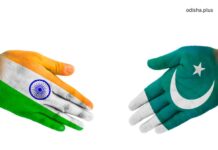Dr. Mrinal Chatterjee
India’s G-20 presidency has provided a unique opportunity to foreground our ancient value system. It can show the world the right path to peaceful co-existence, mired as it is in strife and turbulance
Value system develops over time, under the guidance of the wise and active practice by people, at least majority of the people. India, known for its diverse culture and rich heritage, has a long history that dates back thousands of years. Throughout its civilization, India has fostered a unique set of values that are deeply ingrained in its society and have shaped the Indian way of life. Indian values are not just abstract concepts, but they are rooted in the wisdom and teachings of ancient scriptures, religious texts, and philosophical ideologies that have stood the test of time.

One of the fundamental Indian values is the concept of “Dharma,” which encompasses duty, righteousness, and moral responsibility. Dharma forms the foundation of Indian ethics and is believed to be the basis of a harmonious and just society. It emphasizes the importance of individuals fulfilling their duties and responsibilities towards themselves, their families, their communities, and society as a whole. Dharma promotes selflessness, integrity, and accountability in one’s actions, and encourages individuals to strive for the greater good, rather than self-interest.
Another core Indian value is the emphasis on family values and the importance of familial relationships. Family is considered as the basic unit of society, and Indians hold deep reverence for their elders, ancestors, and the institution of marriage. Respect for parents, grandparents, and other family members is considered a sacred duty, and filial piety is highly cherished in Indian culture. Family values such as love, compassion, unity, and loyalty are instilled in Indian children from a young age, and the bond of family is considered to be an unbreakable thread that nurtures and sustains individuals throughout their lives. However the concept of family in the Indian value system extends to the whole world- vasudhaiva kutumbakam.
Indians also hold a deep reverence for nature and the environment, as they believe that all of creation is interconnected and should be treated with care and respect.

Another significant Indian value is “Ahimsa,” which means non-violence. Ahimsa is not just the absence of physical violence, but also encompasses non-harming in thought, speech, and action. It is rooted in the belief that all living beings are interconnected and that causing harm to others ultimately leads to harm to oneself.
Indian values also emphasize the importance of humility, modesty, and respect for all individuals, regardless of their social status, caste, or creed. Indians believe in the concept of “Vasudhaiva Kutumbakam,” which means the world is one family. This idea promotes inclusivity, tolerance, and acceptance of diversity. Indians also place great importance on community service, philanthropy, and helping those in need. The practice of “Seva” or selfless service is considered a virtuous act and is deeply ingrained in the Indian culture.
The two most important tenets of Indian culture are human Values and Holism. Human values refer to moral, spiritual and ethical values while Holism means oneness or unity.
The fundamentals of Indian Values are – Tyaga (renunciation), Dana (charity), Nishtha (dedication), Satya (truth), Ahimsa (non-violence), Upeksha (forbearance), which means the quality of being patient and sympathetic towards people.

India firmly believes in the philosophy of Vasudhaiva Kutumbakam – the earth is one family – the concept that all individuals are collectively responsible towards each other and their shared future. This shapes India’s vision of sustainable living. This is the theme of G20 summit under Idia’s presidency.
India’s G20 Presidency aims to nurture, celebrate, and incorporate the cultural diversity of the member states while striving towards achieving holistic living and building a pro-planet society.
Looking from the PR perspective, one would see that the basic tenets of public relations are aligned to the Indian value system: forbearance, duty, justice, morality and seva. It has provided the PR professionals the opportunity to rediscover the tenets of their profession.
(Journalist turned media academician, the author Prof Dr. Mrinal Chatterjee presently works as Regional Director of the Eastern India campus of Indian Institute of Mass Communication located at Dhenkanal, Odisha. Views are personal.)



























